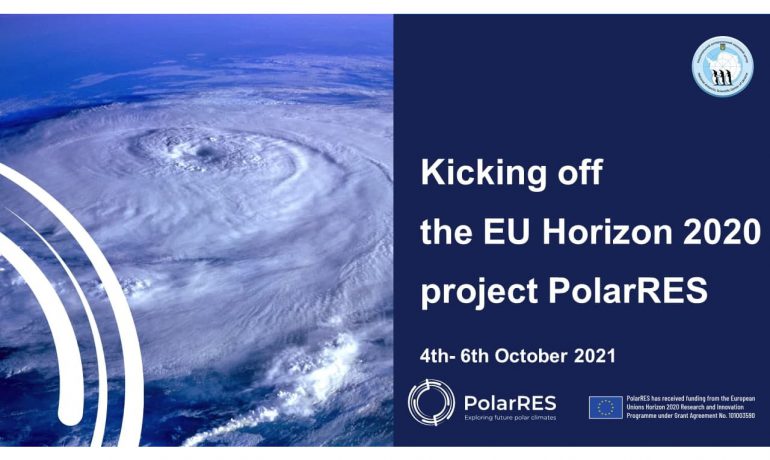The first meeting of the project “Polar Regions in the Earth System: the Role of Local and Regional Polar Processes in Changing the Polar Climate and the Global Climate System” (PolarRES), to which scientists from the National Antarctic Scientific Center are involved, begins on October 4-6.
The Polar regions play a crucial role in balancing global climate – with the poles heating up much faster than the rest of the world. Yet, climate projections for the Polar regions still have significant uncertainties. This is hampering efforts to curb climate change and deal with the effects we already see at play not only within the Polar regions, but also in Europe and the rest of the world.
PolarRES, a new research project funded by the European Union’s Horizon 2020 Programme will work to make climate projections in the polar regions more reliable. Over the next four years, it will develop new insights on polar processes and adopt a so-called ‘storylines approach’. The research will explore how polar climate change will affect Boreal wildfires and permafrost thaw. If ancient permafrost thaws, more greenhouse gases will be released into the atmosphere, further contributing to a hotter planet.
“Both the Arctic and Antarctica are undergoing dramatic changes. There is a pressing need to understand the scope of these changes and the climate processes that underpin them. PolarRES will enable us to achieve this and provide more confident information about the future climate of the Polar Regions. In doing so, it will empower communities in these regions, and society at large, to respond to future changes,” says Priscilla Mooney, climate scientist at NORCE Norwegian Research Centre and the Bjerknes Center for Climate Research.
Research results from the PolarRES project will contribute important knowledge to the EU Strategy on Climate Action.
“International cooperation is key to assessing climate impacts in the Polar regions. It requires a broad range of expertise and infrastructure, which is why it is important to bring together leading experts from all around the world to tackle this problem,” says Priscilla Mooney, climate scientist at NORCE Norwegian Research Centre, who is leading the international research team. The project unites researchers from the EU, China, Japan, UK, Ukraine, Norway and other countries.
The project will not only study the climate in the Polar regions, but everything which feeds into it globally. It will take advantage of cutting-edge numerical models and advanced satellite products from the European Space Agency’s Earth Observation Programme. PolarRES will also deliver new insights into how physical and chemical processes crucial for atmosphere-ocean-ice interactions can shape the global climate system.
About the project: The Project Receives 8 million EUR funding from the European Union’s Horizon 2020 Research Program for the period 01.09.2021 to 31.08.2025 under the Grant Agreement 101003590. The grant is part of the EU’s policy on supporting the transformation to a low-carbon, resilient future and the climate action that supports the Paris Agreement.
PolarRES is coordinated by the NORCE Norwegian Research Centre (Norway) with the following partner institutions (in alphabetical order): Alfred-Wegener-Institut Helmholtz-Zentrum Fur Polar- Und Meeresforschung (DE), Arctik SRL (BE), Danmarks Meteorologiske Institut (DK), Helsingin Yliopisto (FI), Ilmatieteen Laitos (FI), Instytut Problem Matematychnykh Mashyn I System Natsionalnoi Akademii Nauk Ukrainy (UA), Lunds Universitet (SE), Meteorologisk Institutt (NO), National Antarctic Scientific Center (UA), Scientific foundation Nansen International Environmental and Remote Sensing Centre (RU), Shanghai Jiao Tong University (CH), Turun Yliopisto (FI), United Kingdom Research and Innovation (UK), Université de Liege (BE), University of Leeds (UK), Universiteit Utrecht (NL).


